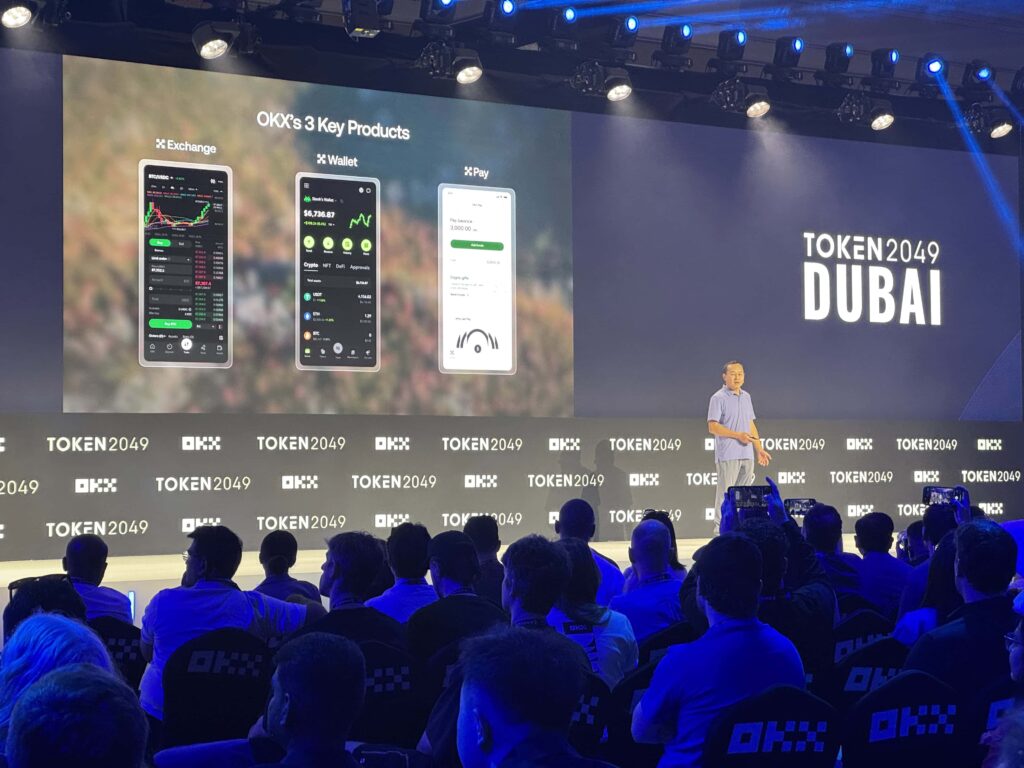OKX MENA Chief: Focus on Real-World Value, Not Just Hype
As the real-world asset RWA tokenization boom accelerates , OKX’s Middle East and North Africa (MENA) CEO Rifad Mahasneh has issued a timely warning to the crypto industry: not every asset needs to be tokenized — unless it brings tangible, everyday value .
Speaking at the Token2049 conference in Dubai , Mahasneh told that while tokenization holds immense promise , many current projects appear more focused on riding the hype than delivering real utility .
“In some cases, we’re tokenizing things that don’t need tokenization,” Mahasneh said. “But in other cases, we’re creating real, everyday value — and that’s where the promising projects lie.”
His comments come amid a surge in RWA initiatives across the Middle East , especially in the United Arab Emirates , where both private enterprises and government agencies are actively exploring how blockchain can digitize traditional assets like real estate, commodities, and financial instruments.

UAE Leads the Charge in RWA Tokenization
The United Arab Emirates is fast becoming a global testing ground for blockchain-based finance , with RWA tokenization at its core.
In May 2025, MultiBank Group , MAG , and Mavryk announced a groundbreaking $3 billion RWA deal — one of the largest tokenization initiatives to date. This partnership aims to tokenize real estate and infrastructure assets using Tezos-based blockchain solutions .
Meanwhile, the Dubai Land Department launched a pilot program to tokenize real estate assets in collaboration with VARA , Dubai’s virtual asset regulator. This initiative could revolutionize property transactions by enabling fractional ownership, faster settlements, and increased transparency .
Earlier this year, Mantra Chain signed a $1 billion agreement with UAE-based conglomerate Damac Group to tokenize luxury real estate holdings. However, the project faced a dramatic collapse in April, wiping out billions in market cap and raising concerns about speculation vs. actual adoption in the RWA sector.
Mahasneh pointed to clear regulatory frameworks as a key reason behind the UAE’s growing appeal to institutional players.
“Clear regulations allow players to understand how key entities like exchanges are governed,” he explained. “This gives institutions the confidence to invest and innovate.”
UAE Stablecoin Framework Attracts Global Players
Beyond asset tokenization, the UAE is also making rapid progress in stablecoin regulation , further strengthening its position in the digital economy.
In June 2024, the Central Bank of the UAE rolled out a comprehensive framework for stablecoin licensing — paving the way for dirham-backed digital currencies .
This move has already drawn attention from major players:
- Tether announced plans to issue a UAE dirham-pegged stablecoin .
- A coalition including First Abu Dhabi Bank , ADQ , and International Holding Company is developing a regulated AED-backed stablecoin , pending final approval.
According to Mahasneh, the speed and clarity of the UAE’s regulatory approach sets a strong precedent for other jurisdictions still debating whether to regulate crypto.
“Other markets are still debating whether they should have crypto regulations. Here, we’ve moved on to developing stablecoin frameworks. For investors, knowing your stablecoin is regulated is a big plus.”

Why Utility Matters More Than Hype in Tokenization
Despite the excitement around RWA tokenization, Mahasneh stressed that long-term sustainability hinges on utility , not just investor interest or speculative momentum.
Tokenization works best when it solves existing inefficiencies — such as:
- Fractional ownership of high-value assets
- Faster cross-border settlement
- Transparent and immutable recordkeeping
- Access to global liquidity pools
Projects that fail to address these real-world challenges risk ending up like Mantra , whose token collapsed after failing to deliver consistent value despite initial hype.
“Hype can drive growth in Web3, but if you want longevity, you must offer something people use every day,” Mahasneh said.
Looking Ahead: UAE as a Blueprint for Global RWA Adoption
With clear regulatory guardrails and strong institutional backing, the UAE is setting the pace for RWA innovation . The country’s proactive stance is attracting top-tier crypto firms, banks, and asset managers looking to explore tokenized finance.
Mahasneh believes the UAE model offers a blueprint for other countries aiming to integrate blockchain into their financial systems.
“If you build trust through regulation and deliver real value through innovation, you create an ecosystem that attracts capital, talent, and long-term growth.”
As governments and corporations globally begin to explore tokenized assets, the lessons from the UAE — and warnings from industry leaders like Mahasneh — will serve as critical guideposts for what works and what doesn’t.
Final Thoughts: Tokenization Must Solve Real Problems
While the RWA tokenization boom shows no signs of slowing down , the path forward depends on prioritizing utility over speculation .
As Mahasneh put it:
“If you can see that everyday value, then that is a promising project.”
For the tokenization movement to mature, it must focus on practical applications — not just short-term gains.








